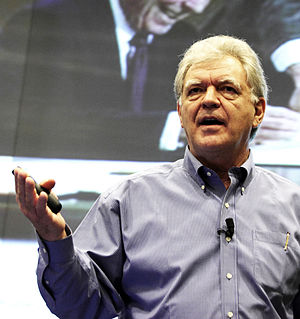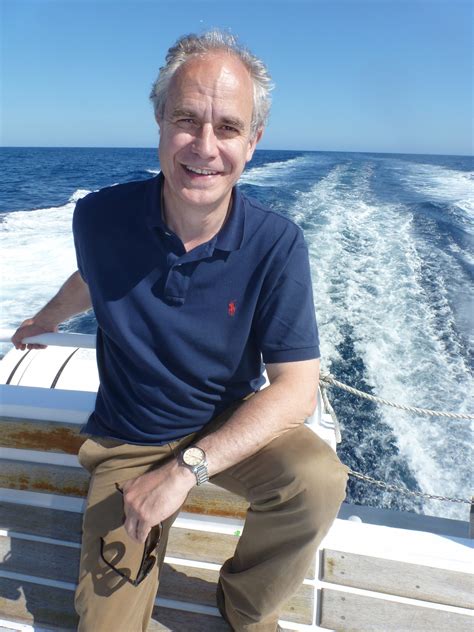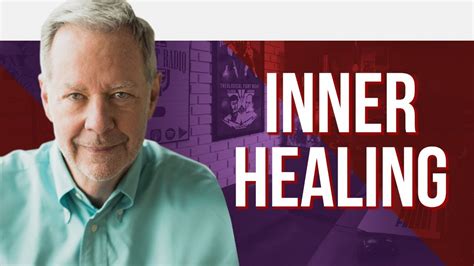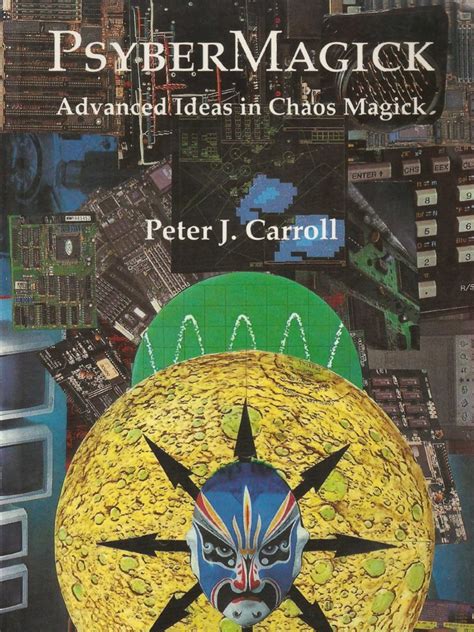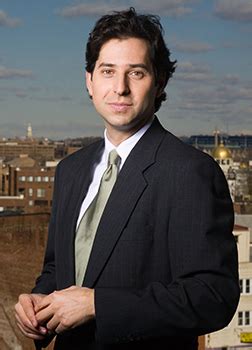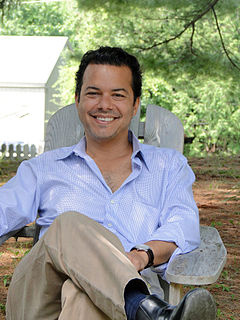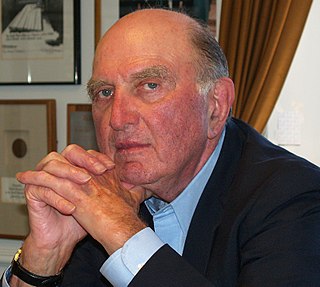Top 1200 Religious Leaders Quotes & Sayings - Page 14
Explore popular Religious Leaders quotes.
Last updated on November 18, 2024.
The federal Religious Freedom Restoration Act passed unanimously in the House, won 97 votes in the Senate, and was signed into law by President Bill Clinton. Twenty states have passed their own versions of this law, and 11 additional ones have religious-liberty protections that state courts have interpreted to provide a similar level of protection.
Although the far territory of the extreme can exert an intoxicating pull on susceptible individuals of all bents, extremism seems to be especially prevalent among those inclined by temperament or upbringing toward religious pursuits. Faith is the very antithesis of reason, injudiciousness a crucial component of spiritual devotion. And when religious fanaticism supplants ratiocination, all bets are suddenly off.
Political as well as religious cults can be distinguished from legitimate organizations by their use of doublethink. Though political cults espouse extremist ideologies, not extremist theologies, operationally they are virtually identical to religious cults, and they also go to great lengths to control the vocabularies of their members.
Not only were the Jews expecting the birth of a Great King, a Wise Man and a Saviour, but Plato and Socrates also spoke of the Logos and of the Universal Wise Man 'yet to come'. Confucius spoke of 'the Saint'; the Sibyls, of a 'Universal King'; the Greek dramatist, of a saviour and redeemer to unloose man from the 'primal eldest curse'. All these were on the Gentile side of the expectation. What separates Christ from all men is that first He was expected; even the Gentiles had a longing for a deliverer, or redeemer. This fact alone distinguishes Him from all other religious leaders.
People who are not leaders automatically gravitate toward lines--limitations set by others. Many people are taught this in kindergarten when they are instructed to stay within the lines while coloring. But leaders are more creative than that. They look for options and opportunities. They try to take things in a new direction, or beyond the limit. Progress and innovation are made by people who think without lines.
A religious phenomenon will only be recognized as such if it is grasped at its own level, that is to say, if it is studied as something religious. To try to grasp the essence of such phenomenon by means of physiology, psychology, sociology, economics, linguistics, art or any other study is false; it misses the one unique and irreducible element in it - the element of the sacred.
When I became religious, it was full-force for me. And, through the lifestyle of being out on the road with non-Jewish musicians, in non-Jewish nightclubs and going all over the world - getting out of the shtetl - opened me up to having experiences that other religious men might not have to think or worry about.
in most important ways, leaders of the future will need the traits and capabilities of leaders throughout history: an eye for change and a steadying hand to provide both vision and reassurance that change can be mastered, a voice that articulates the will of the group and shapes it to constructive ends, and an ability to inspire by force of personality while making others feel empowered to increase and use their own abilities.
The unconscious is the only available source of religious experience. This in certainly not to say that what we call the unconscious is identical with God or is set up in his place. It is simply the medium from which religious experience seems to flow. As to what the further cause of such experience might be, the answer to this lies beyond the range of human knowledge.
If you go back far enough and get a wider enough picture of history, we have let go of many things that follow a religious narrative. We don't burn witches anymore. Most people would consider that barbaric. We don't sacrifice human beings, which was a religious act practiced by numerous cultures on this planet.
In a world torn by every kind of fundamentalism - religious, ethnic, nationalist and tribal - we must grant first place to economic fundamentalism, with its religious conviction that the market, left to its own devices, is capable of resolving all our problems. This faith has its own ayatollahs. Its church is neo-liberalism; its creed is profit; its prayers are for monopolies.
A religion made up solely of heightened religious experiences would not be a religion at all. ...The major religious traditions address the mysteries (with or without entheogens), but they have other business to do: widen understanding, give meaning, provide solace, promote loving-kindness, and connect human being to human being.
A hallmark of high performance leaders is the ability to influence others through all levels and types of communication, from simple interactions to difficult conversations and more complex conflicts, in order to achieve greater team and organizational alignment. High performing leaders are able to unite diverse team members by building common goals and even shared emotions by engaging in powerful and effective dialogue.
I think the characteristics of really effective leaders when people are frightened and depressed are the same qualities that leaders need when people are optimistic. The difference is when people are frightened the need for these few qualities becomes much stronger because frightened people are desperate to have someone they can trust and believe in and who seems to be able to create a better future.
I believe not only that religious faith will be victorious, but that it is vital to humankind that it shall be. We may differ in form and particulars in our religious faith. Those are matters that are sacred to each of our inner sanctuaries. It is our privilege to decline to argue them. Their real demonstration is the lives that we live.
There can never be any real opposition between religion and science; for the one is the complement of the other. Every serious and reflective person realizes, I think, that the religious element in his nature must be recognized and cultivated if all the powers of the human soul are to act together in perfect balance and harmony. And indeed it was not by accident that the greatest thinkers of all ages were deeply religious souls
Wherever applause breaks out in the liturgy because of some human achievement, it is a sure sign that the essence of liturgy has totally disappeared and been replaced by a kind of religious entertainment. Such attraction fades quickly - it cannot compete in the market of leisure pursuits, incorporating as it increasingly does various forms of religious titillation.
Leaders need to remember that the point of leading is not to cross the finish line first. It's to take people across the finish line with you. For that reason, leaders must deliberately slow their pace, stay connected to their people, enlist others to help fulfill the vision, and keep people going. You can't do that if you're running too far ahead of your people.
I am more afraid that this people have so much confidence in their leaders that they will not inquire for themselves of God whether they are led by Him. I am fearful they settle down in a state of blind self-security... Let every man and woman know, by the whispering of the Spirit of God to themselves, whether their leaders are walking in the path the Lord dictates, or not.
Celebrity chefs are the leaders in the field of food, and we are the led. Why should the leaders of chemical businesses be held responsible for polluting the marine environment with a few grams of effluent, which is sublethal to marine species, while celebrity chefs are turning out endangered fish at several dozen tables a night without enduring a syllable of criticism?
When Democrats kind of cavalierly attack the religious right or go after Pat Robertson or Jerry Falwell, our candidates have sent the signal to a lot of religious people, 'Well, I guess they are not interested in me.' And I think this includes a lot of people who would fit very naturally within the Democratic Party.
...Good leaders wait to be called and they give up their power when they are no longer needed. Selfish men and fools put themselves first and keep their power until someone throws them out. It is no good to have a way where selfish men and fools fight with each other to be leaders, while the good ones watch.
The feeling of righteousness is the core mood alteration among religious addicts. Religious addiction is a massive problem in our society. It may be the most pernicious of all addictions because it’s so hard for a person to break his delusion and denial. How can anything be wrong with loving God and giving your life for good works and service to mankind?
Human society is born in the shadow of religious fear, and in that stage the suppression of heresy is a sacred social duty. Then comes the rise of a priesthood, and the independent thinker is met with punishment in this world and the threat of eternal damnation hereafter. Even today it is from the religious side that the greatest danger to freedom of thought comes. Religion is the last thing that man will civilise.
Leaders select noble objectives and pursue them with such intensity that others join them. ... The greatest of all leaders from this perspective was Jesus Christ. ....May your choices be so powerful and magnetic that you'll draw people toward life (Duet. 30:19, ...therefore choose life.-) rather than death, blessing rather than cursing.
Physical processes alone will never completely explain the existence of the universe , life , and consciousness . Religious answers are just wishful thinking and wanton fabrication cast over a bottomless pit of ignorance . To explain their occult and mystical experiences , magicians are forced to develop models beyond the scope of materialistic or religious systems .
I think it's very important to be able to hear from our public leaders in ways that they can't entirely orchestrate, seeing them speak live and unscripted and take questions that they themselves haven't arranged ahead of time. I think this is a way in which citizens who are deciding what they think of their leaders who govern in their name, this is one of the ways in which they can evaluate how they feel about the quality of the leadership.
On religious issues there can be little or no compromise. There is no position on which people are so immovable as their religious beliefs. There is no more powerful ally one can claim in a debate than Jesus Christ, or God, or Allah, or whatever one calls this Supreme Being. But like any powerful weapon, the use of God's name on one's behalf should be used sparingly.
What's different now is that while political leaders used to give talking points to talk radio, now talk-radio hosts are giving talking points to political leaders. It's all part of the suffocating spin cycle we're in. In media, politics and publishing, the conventional wisdom is to play to this base.
I want people to leave the theater with a greater understanding of the rich cultural heritage of Pakistan. "Song of Lahore" moves beyond headlines and stereotypes and shows that a vast majority of Pakistanis are not perpetrators of religious violence - they are victims of it. The beautiful cultural heritage of the region belies its image in the West as monolithically religious, intolerant, and violent.
It wasn't just Shia that would go to Tehran and see the commander of the Quds Force and others and the legitimate government leaders. It was also Kurdish leaders and Sunni Arabs who would even link up with Qassim Suleimani, the commander of the Quds Force - maybe not in Tehran but in Turkey or somewhere else.
Torrents of blood have been spilt in the old world, by vain attempts of the secular arm, to extinguish Religious discord, by proscribing all difference in religious opinion. Time has at length revealed the true remedy. Every relaxation of narrow and rigorous policy, wherever it has been tried, has been found to assuage the disease.
Good leaders set vision, missions, and goals. Great leaders inspire every follower at every level to internalize their purpose, and to understand that their purpose goes far beyond the mere details of their job. When everyone is united in purpose, a positive purpose that serves not only the organization but also, hopefully, the world beyond it, you have a winning team.
First, the skill of storytelling helps to galvanize your team. Second, the discipline of storytelling requires leaders to be clear about their intentions and to prioritize what fits into the story versus secondary goals and issues. Third, there is possibly an artifact here - great storytellers can make their exploits and achievements sound very exciting and memorable. Successful leaders who are not good storytellers won't get the acknowledgement and appreciation they deserve.
There is a place in this world for satire, but there is a time when satire ends and intolerance and bigotry towards religious beliefs of others begins. Religious beliefs are sacred to people and at all times should be respected and honored. As a civil rights activist of the past 40 years, I cannot support a show that disrespects those beliefs and practices.
Leaders trust their guts. "Intuition" is one of those good words that has gotten a bad rap. For some reason, intuition has become a "soft" notion. Garbage! Intuition is the new physics. It's an Einsteinian, seven-sense, practical way to make tough decisions. Bottom line, circa 2001 to 2010: The crazier the times are, the more important it is for leaders to develop and to trust their intuition.
I remember being forced to go to Sunday school for a number of years, even though my parents were not religious. No one was really religious; it was just the framework. There was no passion for it. No passion for anything. Just a quiet, kind of floaty, kind of semi-oppressive, blank palette that youre living in.
It has become a commonplace that aggressiveness also often has its roots in fear. I am inclined to think that this theory has been pushed too far. [...] The type of aggressiveness that is the outcome of timidity is not, I think, that which inspires great leaders; the great leaders, I should say, have an exceptional self-confidence which is not only on the surface, but penetrates deep into the subconscious.
Zealous groups threaten to infringe civil liberties when they seek government support to impose their own religious views on nonadherents. This has taken many forms, including attempts to introduce organized prayer in public schools, to outlaw birth control and abortion, and to use public tax revenues to finance religious schools.
Organization is not only directly linked to unity, but a natural development of that unity. Accordingly, the leaders' pursuit of that unity is also an attempt to organize the people, requiring witness to the fact that the struggle for liberation is a common task." "Leaders who do not act dialogically, but insist on imposing their decisions, do not organize the people--they manipulate them. They do not liberate, nor are they liberated: they oppress.
the heart of religion is not altered states but altered traits of character. For me, then, the test of a substance's religious worth or validity is not what kind of far-out experience it can produce, but is the life improved by its use? That's the test. Now, on that score, if you remove the "religious cocoon," the experiences don't seem to have much in the way of discernible, traceable effects.

















